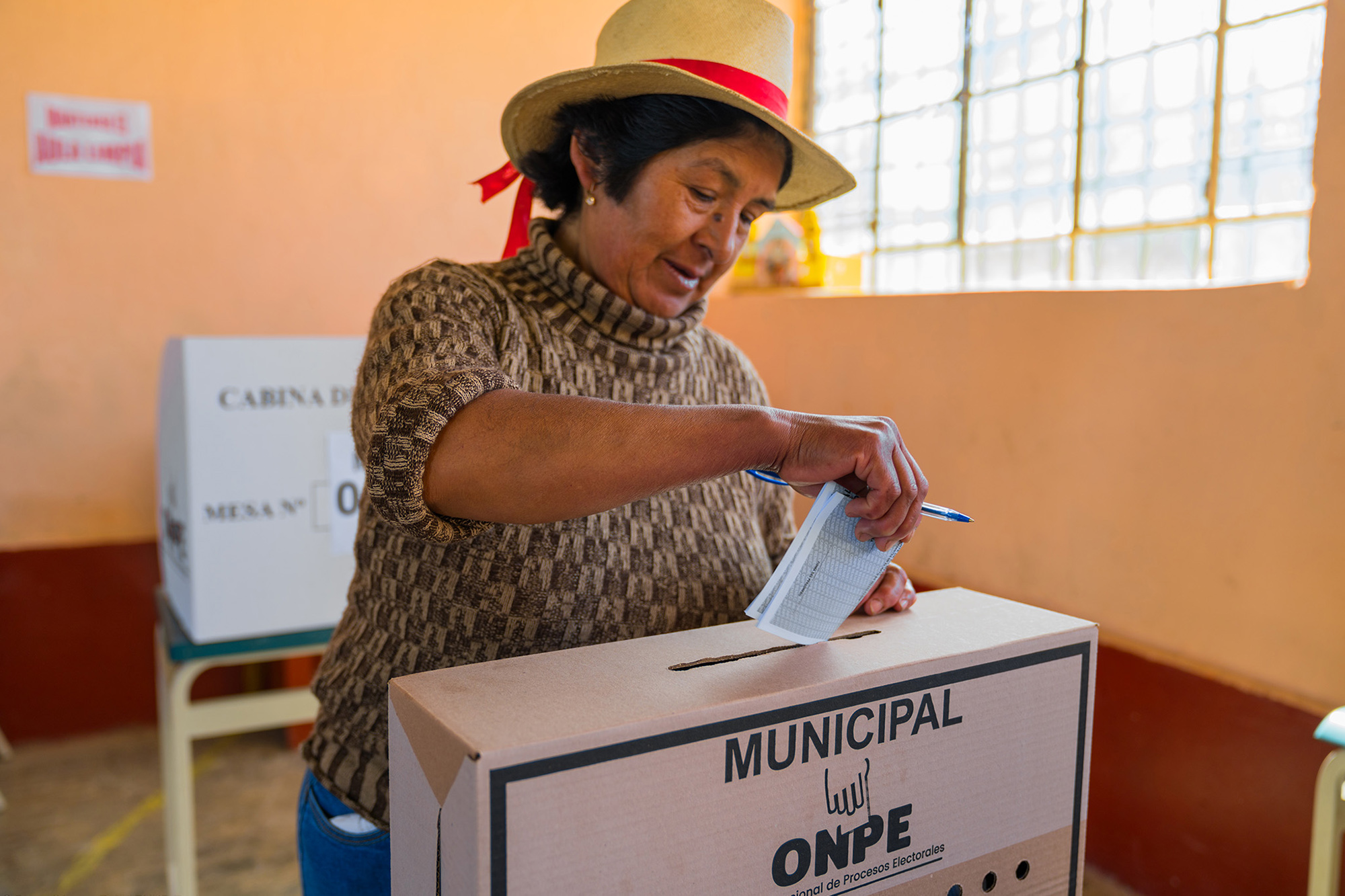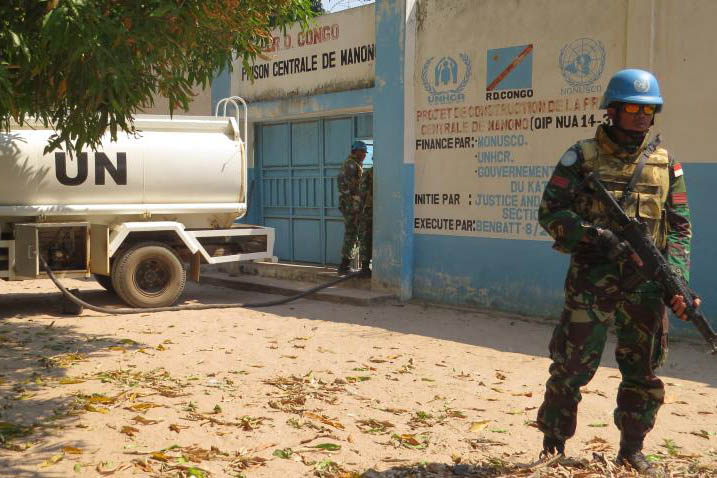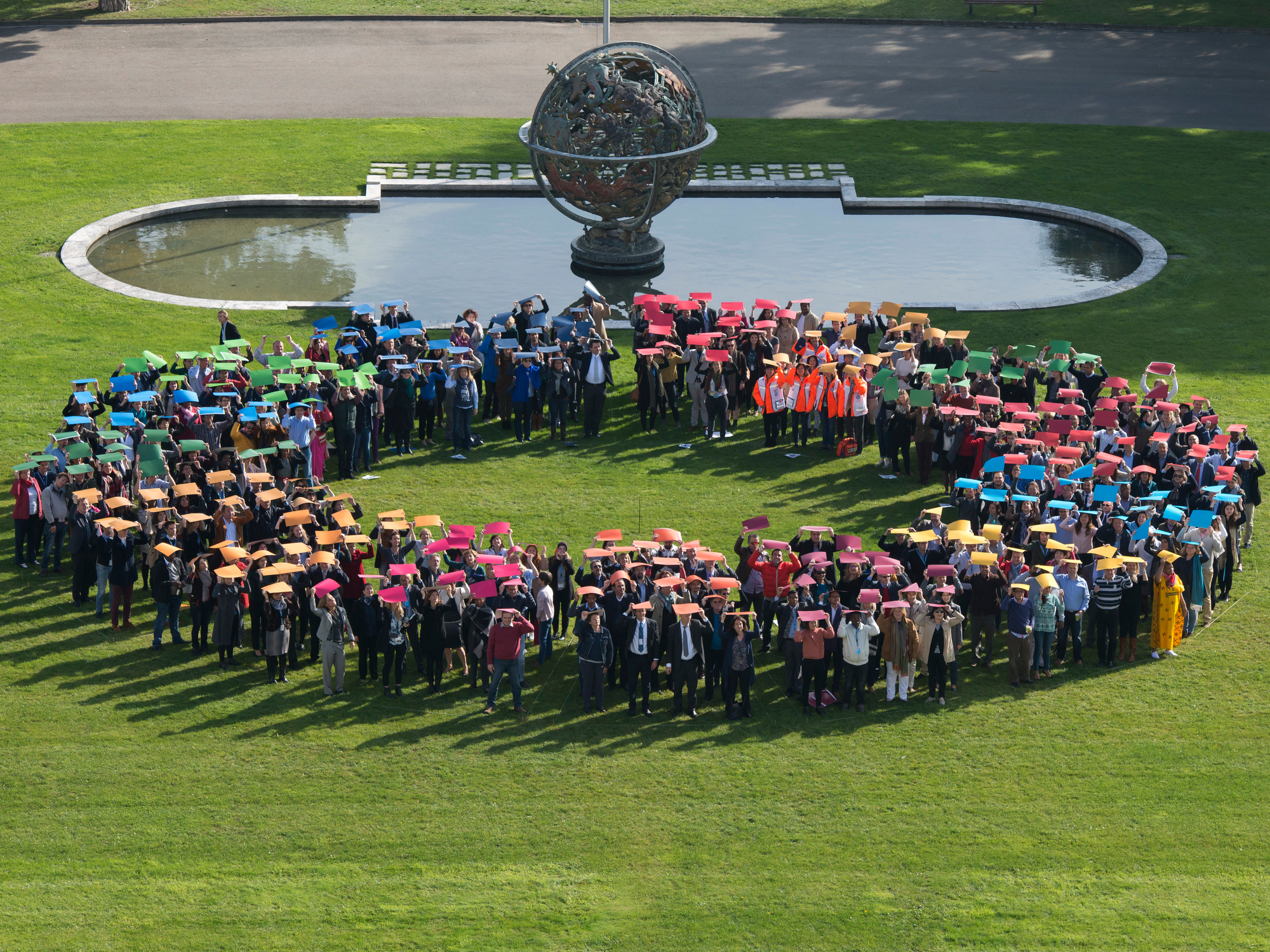Find out more in
Global Issues:
The run-up to Senegal’s recent presidential election was marked by violence and political tensions. However, the March 24 vote passed smoothly, with millions of Senegalese showing up at the polls. No major incidents were reported, and a peaceful transition of power took place, highlighting Senegal’s stable democracy. Women's Watch Platform "Ëtu Jamm" (Peace Space), supported by the UN Human Rights Office Regional Office for West Africa. During the election, Ëtu Jamm deployed women observers, who monitored the vote in real-time at polling stations in Dakar and in the regions.
This year's election is the biggest in human history, with 3.7 billion people across 72 countries having the opportunity to vote. However, many feel they lack control over their lives and their voices are unheard in the political system. Inequality, distrust in government, disinformation, and polarization are significant challenges. Countries need to invest in governance systems that ensure everyone has a voice and their needs and rights are protected. As the UN’s largest provider of electoral assistance, the United Nations Development Programme (UNDP) assists between 40 and 50 countries annually, about a third of which are expected to hold elections in 2024.
“I think it’s a false premise that human rights are dead. To some extent, I think its being promulgated by naysayers and people who have given up on the framework,” said Eleanor Kennedy, senior policy expert from the Open Society Foundation (OSF) in this episode of Voices of Dignity: Pathways to Justice by UN Human Rights.
Last year, OSF put out “Can Democracy Deliver?” a first of its kind look at attitudes and opinions toward all aspects of democracy and human rights. Kennedy said the report brought up many surprising and challenging attitudes regarding human rights and its mechanisms, including if current human rights frameworks actually were delivering on their promises.
But one idea that came through loud and clear in the report, Kennedy stressed, was that the rumours of the demise of human rights has been greatly exaggerated.
The challenge of ending impunity for offenses to reporters is crucial to ensure freedom of expression. The 2023 International Day to End Impunity for Crimes against Journalists (2 November) aims to raise awareness of the hurdles faced by reporters such as violence and repression against them, attacks on the press during social protests, and the use of judicial mechanisms against journalists. The theme also highlights the role of a safe and free press in ensuring the integrity of elections and democracies. States must protect the independent press and promote independence, sustainability and diversity.
By the time many of the teenage climate activists of today are in their late 20s, climate change could force an additional 100 million people into extreme poverty [World Bank]. By 2050, the risk of hunger and malnutrition could rise by 20 percent if the global community fails to act now [WFP]. This year’s theme for the International Day of Democracy, “Empowering the next generation,” focuses on young people’s essential role in advancing democracy and ensuring that their voices are included in the decisions that have a profound impact on their world.
The absence of justice directly fuels conflict. Lack of justice, be it actual or perceived, causes resentment and conflict at both the individual and societal levels. United Nations peace operations that provide support to national justice and security institutions are governed by UN Security Council resolutions. The overall objective remains to strengthen national capacities; extend the authority of the State; and enhance the effectiveness and inclusiveness of justice and security institutions as well as confidence in those institutions, with a view to preventing violence, fighting impunity and sustaining peace.
Corruption not only follows conflict but is also frequently one of its root causes. Corruption also undermines human development and increases inequality. It corrodes rule of law and destroys public trust in governments and leaders. The 2022 International Anti-Corruption Day (9 December) seeks to highlight the crucial link between anti-corruption and peace, security, and development. At its core is the notion that tackling corruption is the right and responsibility of everyone, and that only through cooperation can we overcome the negative impact of this crime.
“I got such a feeling of outrage, healthy outrage, proactive outrage, which I still feel now.”
Staffan de Mistura has dedicated his life to making a difference. Now the Secretary-General’s Personal Envoy for Western Sahara, he spent a large part of his 48-year career at the UN striving for an end to some of the most intractable conflicts of modern times.
“I have no regrets. I would have never chosen another type of job. I think you can [make a difference] even in the worst-case scenario - always.”
From Syria and Afghanistan to Sudan and Iraq, the seasoned diplomat is known for bringing creative thinking to the negotiating table even when others have lost hope. In this episode of Awake at Night with Melissa Fleming, Staffan de Mistura reflects on harnessing constructive outrage as a driving force, on his determination in the face of despair, and why at 75, he isn’t ready to retire just yet.
This year, the International Day of Democracy (15 September) focuses on the importance of media freedom to democracy, peace, and delivering on the Sustainable Development Goals. Free, independent and pluralistic media, able to keep the public informed on matters of public interest, is a key ingredient to democracy. It enables the public to make informed decisions and hold governments to account. Increasingly, journalists around the world face limits to their ability to operate freely – with a grave impact on human rights, democracy and development.
Sweet Victory is a game that introduces players to behavioral science tactics and techniques that are relevant to peace and security questions. It encourages using behavioral science to strengthen resilience against disinformation and political manipulation. Sweet Victory was developed by the UN Department of Political and Peacebuilding Affairs (UN DPPA).
We face a global crisis of trust. COVID-19 has caused the greatest ever recorded reversal in human development. It has also compounded the crises that we already face: planet threatening climate change, environmental degradation, poverty and deepening inequalities. The pandemic also underscored how vital effective political leadership is in all aspects of our lives. It has never been more important to have political processes and institutions that we can trust to act in our best interests. A key facet of UNDP’s new Strategic Plan is reimagining governance.
Bringing public attention to parliaments is particularly important at this critical time for democracy when people are losing trust in political institutions and democracy itself is facing challenges from populist and nationalist movements. If democracy is to thrive, then parliaments need to be strong, transparent, accountable, and representative. The International Day of Parliamentarism is a time to review parliaments’ progress to be more representative and move with the times, through self-assessments, by working to include more women and young MPs, and by adapting to new technologies.
United Nations Public Service Day (23 June) celebrates the value and virtue of public service to the community, including its contribution to the development process. The Day recognizes the work of public servants and encourages young people to pursue careers in the public sector. A virtual event, themed “Building back better from COVID-19: Enhancing innovative partnerships to meet the Sustainable Development Goals,” will be held on the 22 June. This year’s UN Public Service Award winners will also be announced during the online event. Follow the discussions on UN Web TV.
When we vote, we're not just choosing a leader, a lawmaker, our local councillor or between two opposite policies. We're shaping the policies that have real impact in our lives. But, who should ensure that citizens receive accurate information? The media, political parties and electoral regulators have a role to play. Because when information is accurate, extensive and available, our elections remain free and fair, and democracy thrives. Learn more about how UNESCO protects freedom of expression and the safety of journalists.














